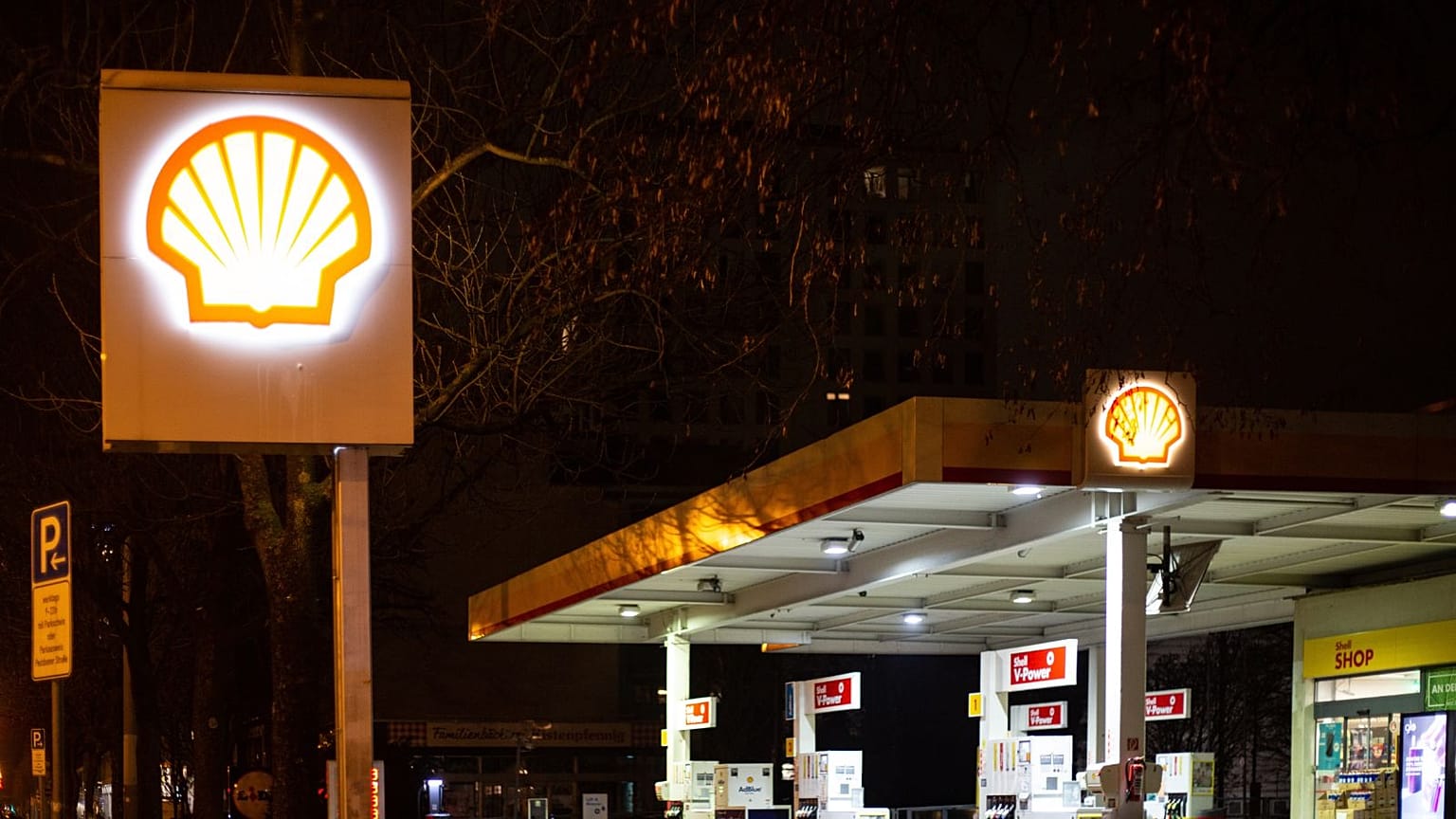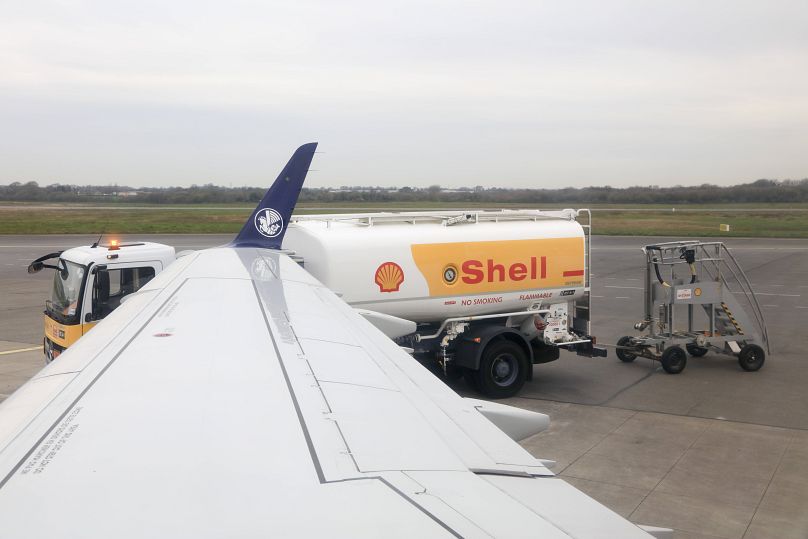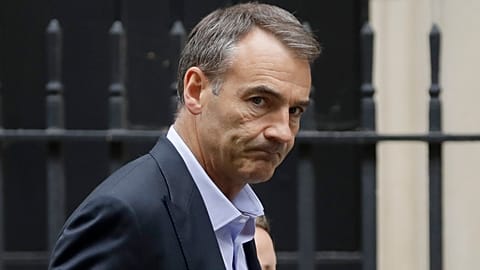The oil and gas giant claims it has already hit its 2030 target, because it sold its interest in a Texan oilfield in 2021.
Shell is the latest fossil fuel company to scale back on its climate change pledges in order to increase payouts to shareholders.
 ADVERTISEMENT
ADVERTISEMENT
 ADVERTISEMENT
ADVERTISEMENT
The oil and gas giant announced yesterday that it is dropping plans to cut oil production each year for the rest of the decade.
In its 2021 strategy, the company said it would aim for “an expected gradual reduction in oil production of around 1-2 per cent each year”.
And last year, former chief executive Ben van Beurden surprised some activists and investors by establishing a target of 2050 to reach net zero emissions.
But it appears the potential profits - Shell made a record €36 billion in 2022 - are too appealing for the new CEO Wael Sawan and his team.
Shell now says that production will remain stable until 2030, and it will invest $40 billion (€36.7 bn) in oil and gas production between 2023 and 2035.
That’s compared to between $10bn (€9bn) and $15bn (€13.7bn) in ‘low-carbon’ products like biofuels, hydrogen and carbon capture and storage.
Sawan told investors at the New York stock exchange that he wanted to “reward our shareholders today and far into the future”.
Despite claiming that he wanted to lower emissions, the chief exec also emphasised his belief that oil and gas will be required for the long term.
How has Shell justified the decision to keep oil production the same?
Shell argues that it has already achieved its production reduction goals for the rest of the decade, after selling its interest in the Permian Basin oilfield in Texas in 2021.
“Our target of a reduction in oil production by 2030 has not changed. We’ve just met it eight years early,” a spokesperson for the company said.
The 2021 strategy, issued seven months earlier, did state that oil cutbacks could come from “divestments and natural decline”. Shell said the plan did not constitute a commitment to cutting oil production steadily.
But the Texan sale to ConocoPhillips, another hydrocarbon company, has not reduced the amount of global carbon emissions being pumped out by the industry. It’s far from the energy transition approach that environmentalists have in mind.
The International Energy Agency (IEA) warned that year that the development of new oil and gas fields had to stop immediately to meet the goal of global net zero carbon emissions by 2050 and avoid climate breakdown.
Yesterday the energy watchdog predicted that global demand for oil will hit a record this year before peaking in 2028.
The war in Ukraine has made governments anxious to shore up their energy supplies, and Sawan says that Shell is therefore “investing to provide the energy security that customers need.”
What do climate campaigners say about Shell’s U-turn?
But climate campaigners have condemned the plan to keep oil burning as usual.
Co-leader of the UK Green party Carla Denyer says it amounts to “pure climate vandalism”, and is “a sign that fossil fuel companies will not steer us to the greener future we all crave without political leadership from national governments.”
“Shell are climate criminals, polluting our planet and reaping record profits for shareholders,” adds co-leader and MP Caroline Lucas.
“Like other fossil fuel giants which have also scaled back their ambitions, Shell now admits that it has no plans to change its business model,” added NGO Friends of Earth.
Which other oil and gas majors are scaling back climate targets?
Shell isn’t the only company getting less ambitious at this critical point for the planet’s future.
Back in February, British Petroleum (BP) announced that it is targeting a 20-30 per cent cut in emissions by 2030, after previously promising that emissions would be 35-40 per cent lower by then.
It justified the decision claiming it needed to keep investing in oil and gas to meet current demands. At the time, Greenpeace partly blamed the rowback on “pressure from investors and governments to make even more dirty money out of oil and gas".
TotalEnergies, based in France, took the same direction in April, scaling back a 35-40 per cent cut in emissions by 2030 to only 20-30 per cent, consulting firm Verdantix reported.
Interviewed by AFP, senior policy editor of Carbon Brief Dr Simon Evans says, it is “very clear that we are not on the right track to limit global warming to 1.5C”.
However, he says, the European oil companies remain “ahead of the others” and, in particular, their US rivals, in terms of investment in low-carbon energies.


















